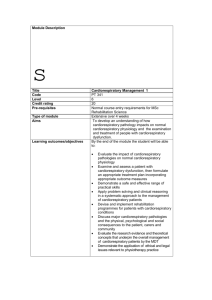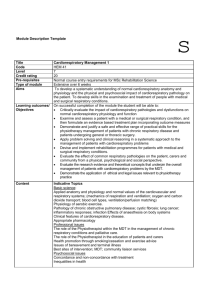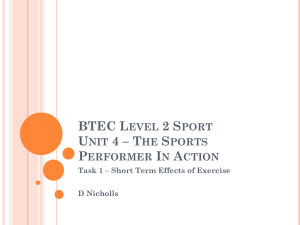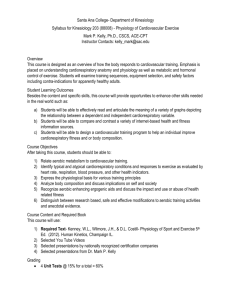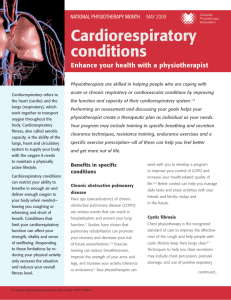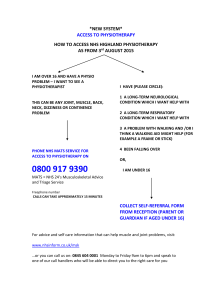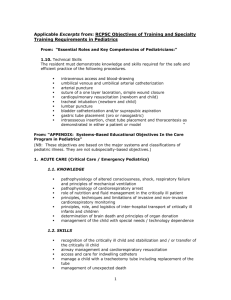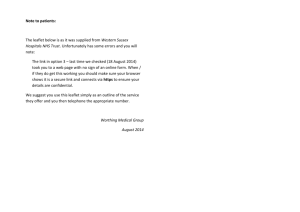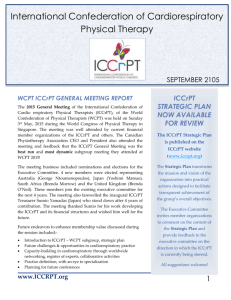PT203
advertisement
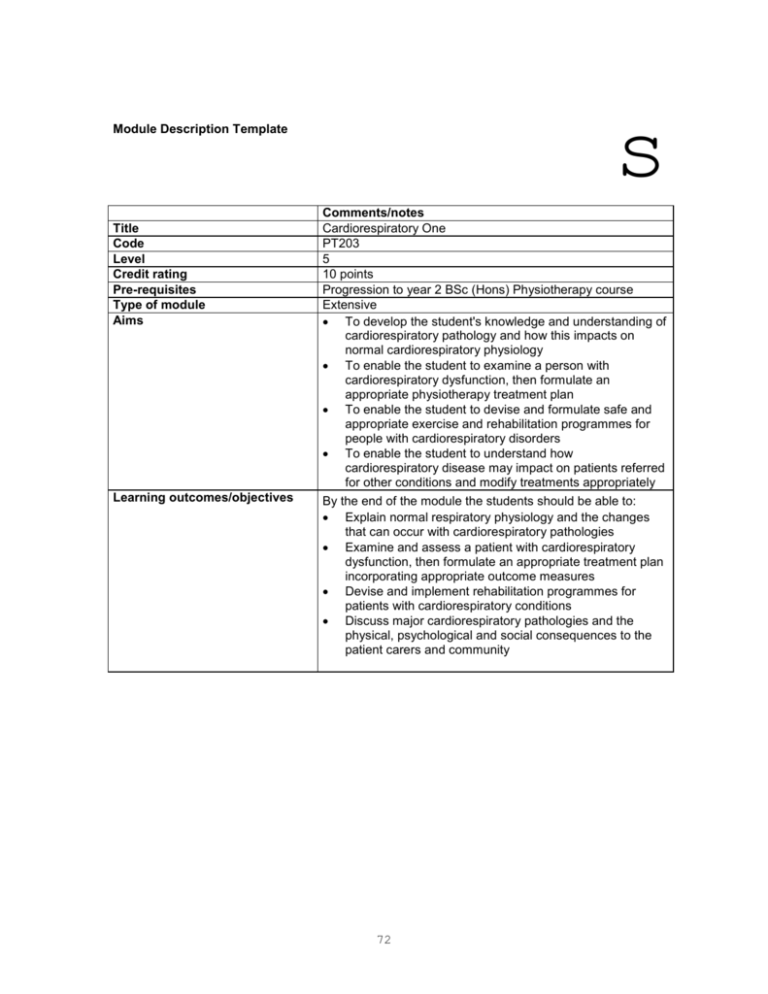
s Module Description Template Title Code Level Credit rating Pre-requisites Type of module Aims Learning outcomes/objectives Comments/notes Cardiorespiratory One PT203 5 10 points Progression to year 2 BSc (Hons) Physiotherapy course Extensive To develop the student's knowledge and understanding of cardiorespiratory pathology and how this impacts on normal cardiorespiratory physiology To enable the student to examine a person with cardiorespiratory dysfunction, then formulate an appropriate physiotherapy treatment plan To enable the student to devise and formulate safe and appropriate exercise and rehabilitation programmes for people with cardiorespiratory disorders To enable the student to understand how cardiorespiratory disease may impact on patients referred for other conditions and modify treatments appropriately By the end of the module the students should be able to: Explain normal respiratory physiology and the changes that can occur with cardiorespiratory pathologies Examine and assess a patient with cardiorespiratory dysfunction, then formulate an appropriate treatment plan incorporating appropriate outcome measures Devise and implement rehabilitation programmes for patients with cardiorespiratory conditions Discuss major cardiorespiratory pathologies and the physical, psychological and social consequences to the patient carers and community 72 Content Applied physiology anatomy and normal values Signs and symptoms of cardiorespiratory disease Examination, assessment and development of appropriate outcome measures for the cardiorespiratory patient Pathology of and physiotherapy for chronic lung disease and other lung conditions.(chronic bronchitis, emphysema, asthma, bronchiectasis, cystic fibrosis, Ca lung, pneumonia, TB) Pathology of and physiotherapy for cardiovascular diseases (IHD, heart failure, valve disease, hypertension, PVD and amputation) Pathophysiological changes in the cardiorespiratory system in the stable general surgery and thoracic surgery patient and appropriate physiotherapy for these types of patient. Cardiac and pulmonary rehabilitation Teaching and learning strategies Lectures supported by tutorials and seminars Learning support Module handout, videos, self assessments, clinical material (chest x rays, inhalers, charts etc) Indicative Reading Hough, A. 2001. Physiotherapy in Respiratory Care. 3rd Edition. London. Chapman and Hall. Jobin, J., F. Maltais, P. LeBlanc, C. Simard, 2000. Advances in Cardiopulmonary Rehabilitation. Champaign,IL. Human Kinetics. Kumar, P. and M.Clark, 1998. Clinical Medicine. 4th Edition. London. W.B. Saunders. Morgan, M. and S. Singh, Eds. 1997. Practical Pulmonary Rehabilitation. London. Chapman and Hall Medical. Webber, B.A.. and J. Pryor , Eds. 1998. Physiotherapy for Respiratory and Cardiac Problems. 2nd Edition. Edinburgh. Churchill Livingstone. Assessment tasks 2000 word essay relating cardiorespiratory pathology and physiology to physiotherapy treatment and practice Brief description of module Cardiorespiratory physiotherapy is a core skill for any content and/or aims (maximum physiotherapist working with patients in a variety of areas 80 words) such as hospital inpatients, outpatients and community. This module sets out to prepare the student for dealing with the more chronic stable cardiorespiratory patient and to understand how these types of disorder may impact on patients in other clinical settings. Area examination board to which Physiotherapy module relates Module team/authors/ Helen Fiddler, Angela Glynn, Sharon Sneddon coordinator Semester offered, where One appropriate Site where delivered Eastbourne 73 Date of first approval Date of last revision Date of approval of this version Version number Replacement for previous module Field for which module is acceptable and status in that field Course(s) for which module is acceptable and status in course School home External examiner May 2002 May 2002 2 Physiotherapy BSc (Hons) Physiotherapy : Compulsory Health Professions Richard Stephenson, Margaret Grant 74
